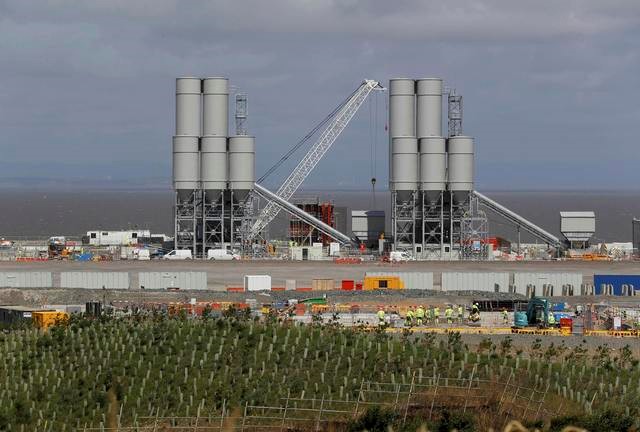By Geert De Clercq
PARIS (Reuters) - French firms Bouygues and Vallourec denied that members of their boards who are also on the board of EDF had a conflict of interest when they voted in favour of the French utility's Hinkley Point nuclear project in Britain.
EDF's board narrowly approved the controversial 18 billion pound project in a 10-7 vote on July 28. EDF unions argue the project should be delayed because of its financial risk and said on Monday that conflicts of interest in EDF's board might have impacted the vote.
They say three EDF (PA:EDF) board members are also on the boards of other firms that are EDF customers, which could benefit from Hinkley Point, and should therefore have abstained.
Hours after the EDF board's decision, the British government announced a surprise decision to review the project, delaying its verdict until early autumn.
EDF board member Colette Lewiner is also on the board of construction firm Bouygues, (PA:BOUY) set to be one of the main contractors for Hinkley Point.
"There was no conflict of interest with regard to Mme. Lewiner," a Bouygues spokesman said on Wednesday.
He said Lewiner is an independent Bouygues board member with whom management cannot interfere. He added that Bouygues decisions about Hinkley Point are not taken at board level.
Lewiner did not return a request for comment.
In October 2013, a joint venture of Bouygues unit Bouygues Travaux Publics (TP) and British firm Laing O'Rourke said it had been confirmed as preferred delivery partner for the main Hinkley Point civil engineering and construction contract, valued at over 2 billion pounds.
EDF board member Philippe Crouzet is also chairman of the board of Vallourec (PA:VLLP), whose Valinox unit makes tubes for nuclear power plants.
A spokeswoman confirmed Vallourec sells steel tubes for steam generators to Areva (PA:AREVA), which will deliver the two Hinkley Point reactors. She would not reveal sales data for individual clients nor comment on Crouzet's Hinkley Point vote.
She added that Vallourec's nuclear activities represent only about three percent of the group's worldwide turnover.
"It is definitely not core business," she said.
Vallourec says on its website it has been a partner of France's nuclear industry from the outset and will play a key role in renovating the country's nuclear power plants.
Finally, EDF board member Christian Masset, secretary general of the French foreign affairs ministry, is also on Areva's board. Masset did not respond to a request for comment.

Earlier this year, Areva board chairman Philippe Varin stepped down from his EDF board mandate after unions and the French press raised questions about a possible conflict of interest between the two positions.